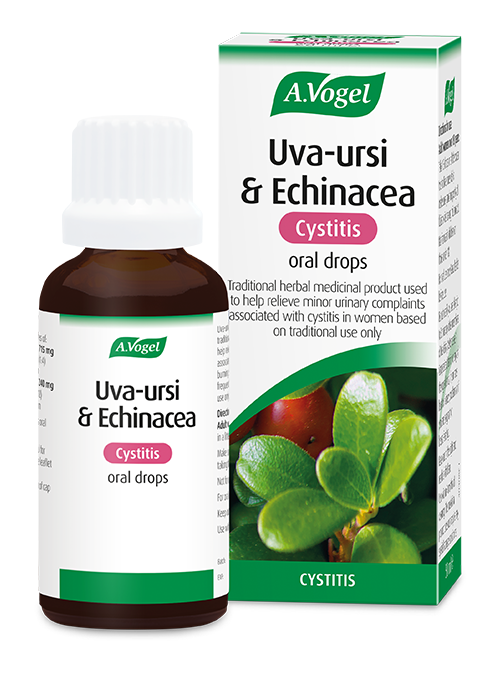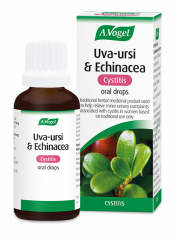Why do I keep getting UTIs?
Having low immunity could give rise to frequent UTIs, as can other factors including not recovering properly from previous infections. Some other contributing factors or habits which haven't been altered can have a bearing, including diet, gut bacteria imbalance, hygiene practices or urinary retention.
Recurring cystitis
Cystitis or UTIs can be painful, unpleasant and even debilitating conditions – having to consciously drink glass after glass of water and use the bathroom every 10 minutes can make it difficult to live a normal life! For a few days this may be manageable, if a bit annoying. For some, however, cystitis is a recurring condition that just keeps coming back.
Recurrent cystitis usually means two infections within six months, or three in a year. But in some cases, they can occur much more frequently than that.
What could be causing frequent UTIs?
Cystitis is the term used for the inflammation of the bladder, and this inflammation is most commonly caused by a bladder infection. UTIs can crop up at varying locations along the urinary tract, although most often around the bladder.
Some people are naturally just more prone to developing cystitis without any real cause.
However, there are also a number of more specific causes that you should look out for, as knowing the cause makes it easier to prevent.
1. Not fully recovering from a previous infection
I’m sure most of us have been there – as soon as the burning sensation and constant need to pee disappears we relax on the cranberry juice, or our water intake drops right down and we think we can get back to our usual routines. However, this can be a bit hasty, as at this point there may still be some bacteria left in the bladder that can quickly begin to multiply again if you aren’t careful. Recovering is always key (for many areas of health, come to think of it!).
If you're keen to support yourself fully and treat the symptoms head-on, try our Uva-ursi & Echinaforce. This is licensed for managing urinary tract symptoms associated with cystitis, and can be taken for more than a few days, unlike some courses of antibiotics. However, should your symptoms fail to improve after 7 days, you should stop taking it and visit your doctor for further advice.
2. Not fully emptying the bladder
There are a number of reasons why you might not be fully emptying your bladder, known as urinary retention. This could include obstructions in the urethra, including from prolapse related to menopause, enlarged prolapse, or even a full bowel! Although other possible links could include stress or anxiety.
Regardless of the cause, urinary retention can leave concentrated or old pee lingering in the bladder which can be irritating.
So, if you often feel like you still need to pee after emptying your bladder, the best course of action would be to consult your doctor, who may refer you for an ultrasound of your bladder and some further investigations.
3. Sex
Sex can, unfortunately, also contribute to cystitis or UTIs as this is a really easy way to spread bacteria into the urethra. As well as this, sex can cause irritation, damage or bruising to the bladder wall and the urethra, causing inflammation. This is sometimes referred to as 'Honeymoon cystitis' and often occurs when having sex for the first time, or after having sex for the first time in a while, when the lining of your urinary tract may be that little bit more delicate.
4. Diet
Poor diet has a really important role in the development of cystitis or UTIs. Bacteria feed off sugar, so eating too many sugary foods including refined carbohydrates could give rise to recurring cystitis, especially if this is a recurring theme of your diet, rather than a one-off.
This also means that diabetes can be a problem because diabetics often have more sugar in their urine than your average person.
For more in-depth information, read my diet tips for cystitis.
5. Poor hygiene
Sometimes people who are more prone to cystitis or UTIs need to be extra careful about hygiene when it comes to this intimate area.
Firstly, it is particularly easy in women for bacteria to transfer to the urethra and up into the bladder, but actually both being too lenient, or too harsh with our hygiene practices can be equally as detrimental.
6. Disruption to intimate or gut flora
However, things like antibiotics, poor diet or an over-use of antibacterial soap can easily alter this balance, and leave bad bacteria free to multiply.
7. Poor immune functions
If your cystitis or UTIs follow the pattern of repeat infections, then it might be that your immune system isn’t working to its maximum potential.
You rely heavily on your immune system to detect and eradicate any infection, be it located within your urinary tract or elsewhere.
Tips to reduce the chance of UTIs returning
Here are my top tips for reducing the chances of cystitis returning. It may be worth trying a few, particularly if you aren’t sure what is causing your recurring symptoms.
- Make sure to continue treatment, including drinking plenty of water, for several days after your symptoms have stopped, and always finish any antibiotic treatment your doctor has prescribed. This will reduce the chances of it returning the next week, and help prevent the development of resistant strains. This is where Uva-ursi & Echinacea can also prove useful, as it can be used for a little longer. Take it daily following a bout of cystitis to clear up any lingering infection located in and around the bladder.
- Take Echinaforce separately, plus Nature-C vitamin C tablets to help strengthen your body’s defences against infection. Other measures such as improving diet and taking probiotics will also benefit your immune system.
- Increase your daily intake of water. This is possibly the most important prevention method! Drinking more water means that you empty your bladder more frequently, giving bacteria little time to multiply, but it also makes urine less concentrated and so less irritating to the bladder wall.
- Make sure to urinate soon after sex to flush out any bacteria that have crept up your urethra. It is important to flush these out before they reach the bladder to prevent infection.
- Improve your diet. Reduce your intake of refined sugar, processed foods, and inflammatory substances such as alcohol, caffeine and spicy foods. Eat more complex carbohydrates, fruit, vegetables, seeds and nuts to ensure you get the right nutrients for your body. For more information see my diet tips for cystitis.
- Be careful to wipe front to back after using the toilet, and insert tampons with clean hands.
- Take a probiotic and prebiotic supplement. Probiotics will help replace your good bacteria to naturally keep bad bacteria in check. Optibac have a great range – I recommend a combination of For Women and For Every Day. For Women is scientifically proven to reach the intimate area alive, while For Everyday will help keep your gut bacteria happy. In addition to this, taking Molkosan will help to create an environment in your body in which good bacteria can more successfully thrive.
- Avoid washing your intimate area with harsh chemicals and perfumed soaps, as these not only irritate the urethra, but they can also disrupt your balance of bacteria. Stick to warm water, and if opting for soap, make sure it is natural and perfume free.
- Take a good quality Cranberry Juice or our Cranberry tablets daily for long-term protection against cystitis. Cranberries can help to prevent bacteria from sticking to the bladder wall, as well as other bladder-friendly herbs such as Golden Rod. Check out our Cranberry Complex tablets for a sugar-free cranberry option.
- Avoid tight clothing such as tights and leggings, and opt for cotton underwear.
- Change your towel frequently. Take a clean towel every day if you can, if not then every couple of days should be fine provided you allow your towel to dry properly in between. Air drying in a well-ventilated room works well, and you may want to experiment with washing things like towels or underwear at a higher temperate if you feel the transfer of bacteria is proving problematic.
Like I said, there are loads of reasons why you might be struggling with cystitis, and it doesn’t necessarily mean you are doing something wrong or that you are unclean – unfortunately some people are just more susceptible to infection!
Try as many of these measures as you can to see which ones work. It may be that there are a few contributing factors to your symptoms so a combination of preventative measures usually works best.
If nothing seems to help your cystitis, consult your GP. They will be able to do a number of tests to make sure everything is working okay, including ultrasounds and urine analysis. They can prescribe you antibiotics which help relieve the infection quickly, but it is not very helpful to take them regularly for recurring cystitis as your good bacteria could soon suffer for it.
If no cause can be found, it may be that you are suffering from interstitial cystitis. Click the link for more information.










